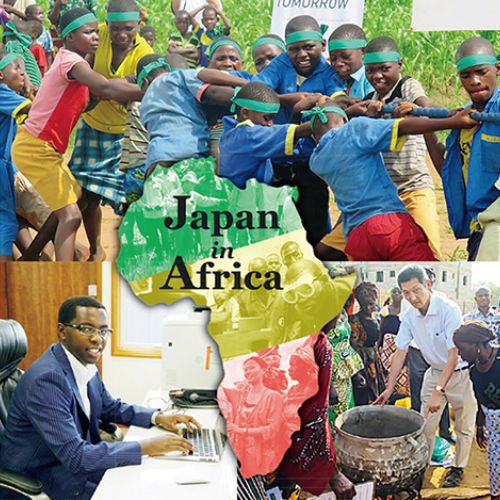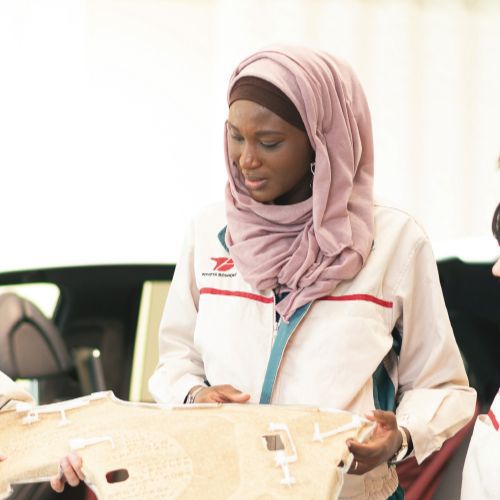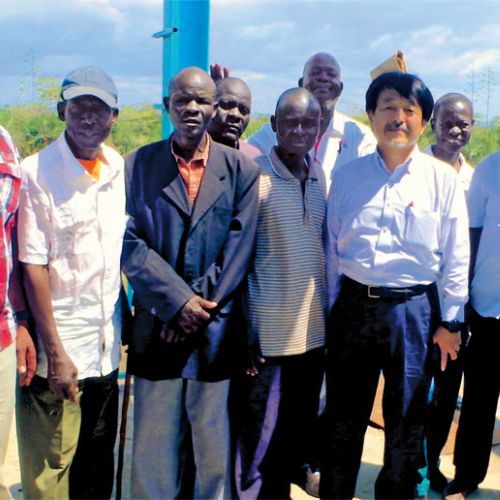Japan is one of the biggest coffee-loving countries in the world, and African brews are especially popular here thanks to happy relations between Japan and African nations
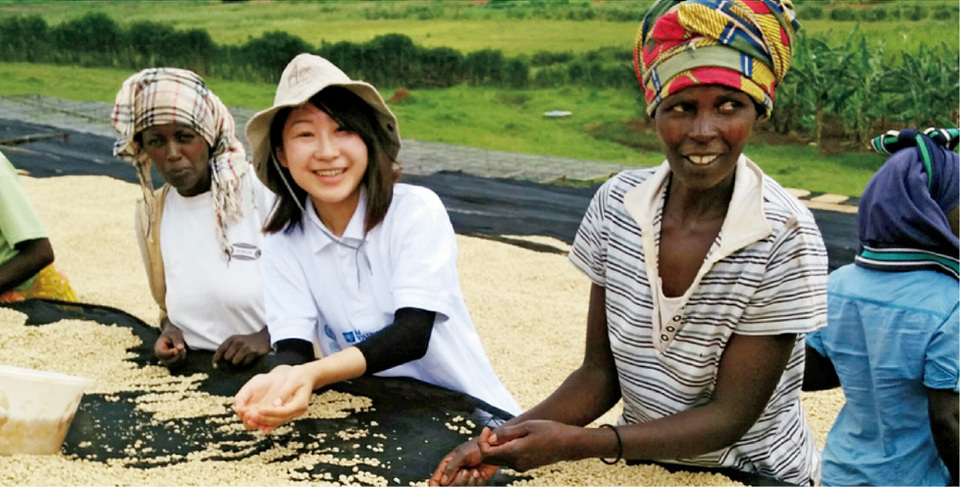
A Japanese expert explains to producers the differences between good and flawed beans at a coffee-washing station.
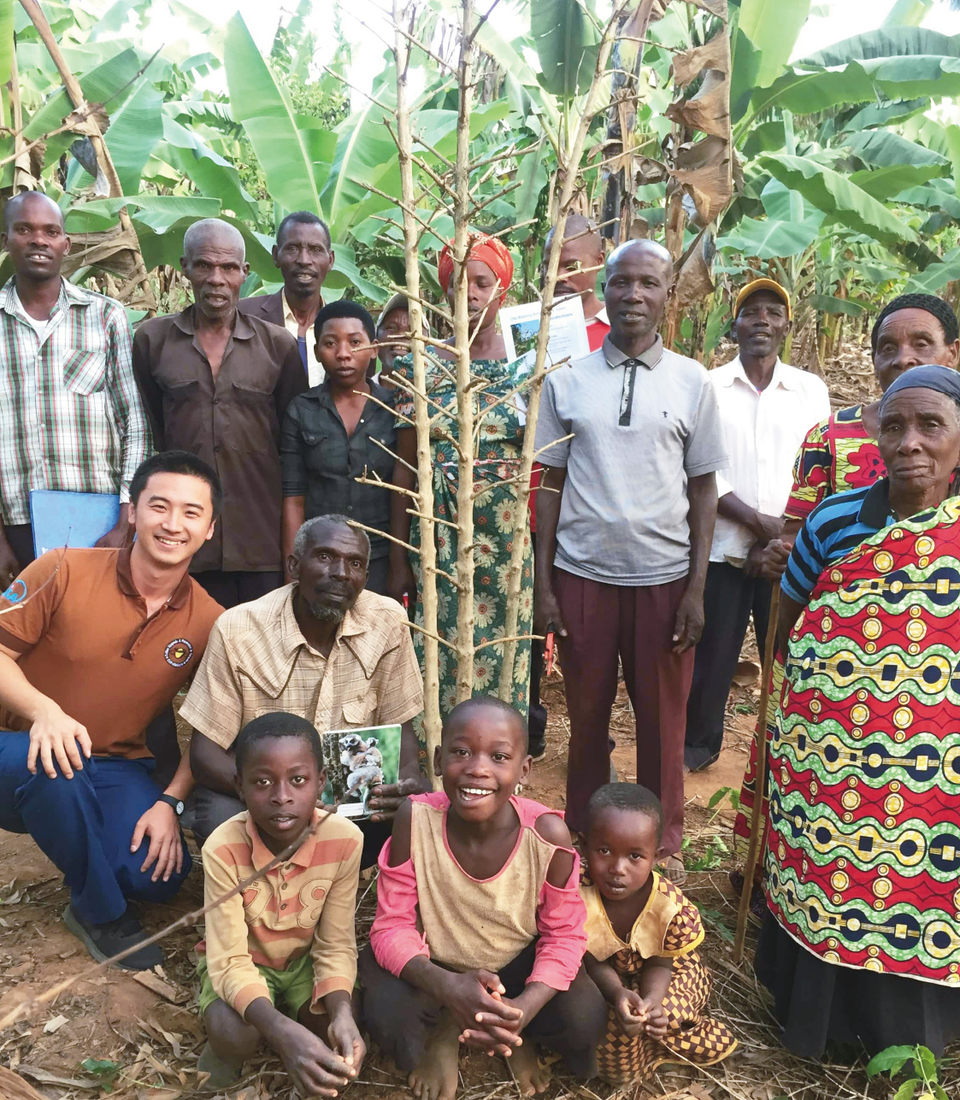
A Japanese expert with producers. By providing in-person support on site, they build up trust. Those efforts are also improving coffee bean quality.
If you walk down the streets of Tokyo, you may see several coffee shops lining a given block, with coffee beans from around the world on display. These days, coffee is an everyday essential for the Japanese, and Japan is the world’s sixth-largest importer of coffee by total volume.[1] Most of those imports come from Central and South America, Asia, Oceania and Africa. Beans from Africa in particular have been garnering increasing attention over the years.
Japanese connoisseurs are increasingly exploring the beans in search of more diverse flavors, as each kind of African coffee has unique traits that depend on its country of origin. Mocha beans from Ethiopia have a characteristically mellow sourness, while Kilimanjaro coffee beans from Tanzania feature a wilder flavor. In Japan, even scarce Malawi coffee, which used to be a rarity, has become easy to find.
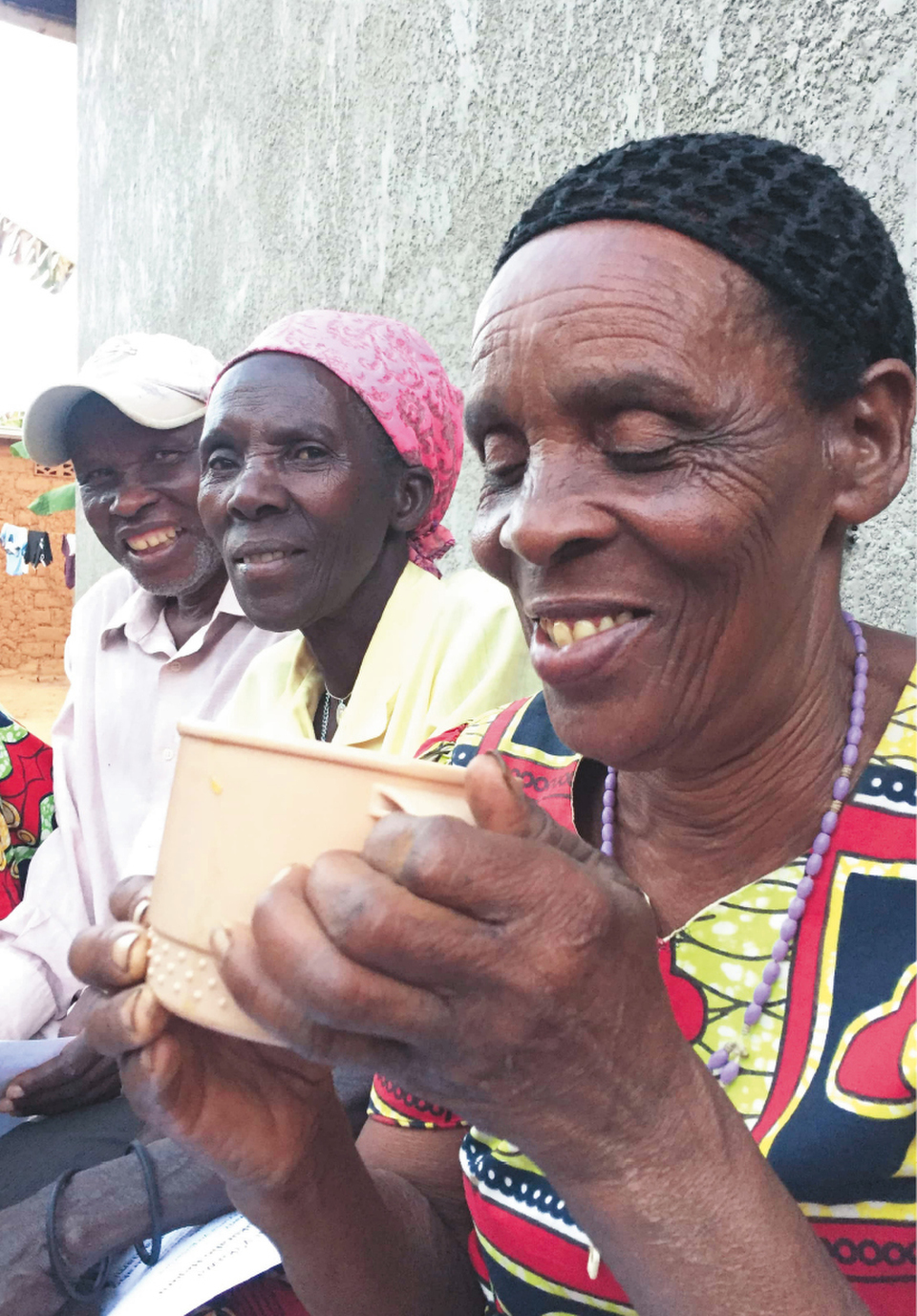
Producers have few opportunities to drink the coffee brewed from their beans. That contact with the end-product made from their crops helps them understand what they are achieving and fosters their self-esteem.
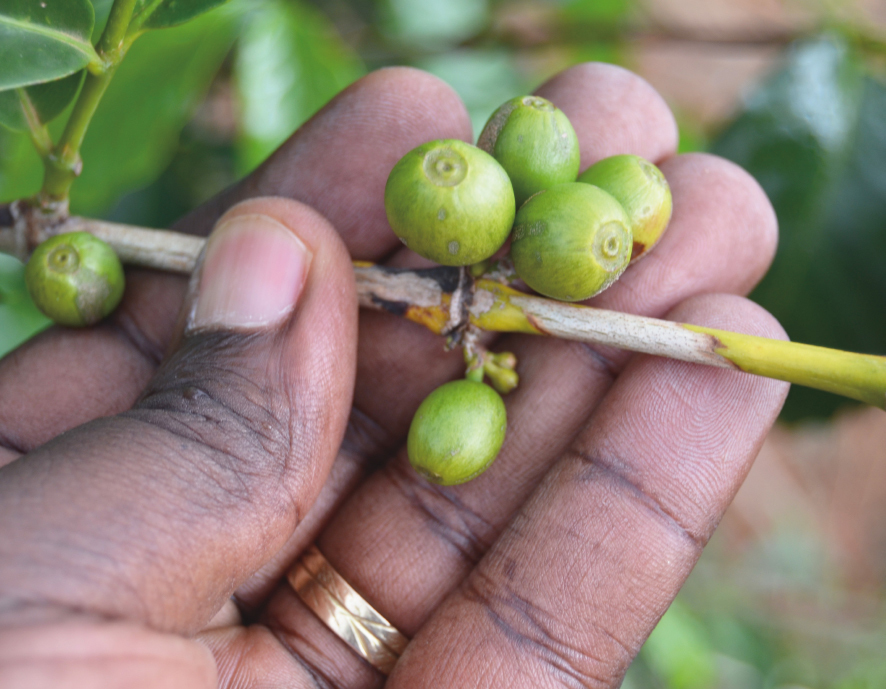
These fruits, called coffee cherries, contain beans that are processed into coffee beans for delivery to consumers. African coffee beans exhibit a diversity of traits that vary according to place of origin.
The Japan International Cooperation Agency ( JICA) has adopted various approaches to support the African coffee business. JICA has been involved in coffee cultivation trials in Uganda since 2002 and technical training in Malawi since 2004, and it has been helping businesses in Ethiopia gain international certifications and export certified coffee beans since 2012.
Furthermore, in 2016, JICA launched the Project for Strengthening the Coffee Value Chain in Rwanda in response to a request from the Rwandan government. The intent of this project is to raise awareness about quality standards among the people in the business while boosting the production volume and international competitiveness of Rwandan coffee. Support to improve their business extends to all processes: production, selection, processing, distribution, and sales. Japan sends experts and Japan Overseas Cooperation Volunteers to work hand-in-hand with locals.
Efforts are made to implement the best improvements that will not burden the producers with extra cost or labor, and emphasis is placed on carefully explaining the reasons for the value chain while listening to the producers’ needs. This support covers all aspects of the plantation, from soil improvement to guidance on water-washing based coffee processing.
Since many producers do not have direct experience drinking coffee, the project also aims to better inform producers on what makes a delicious cup of coffee. This is done by holding tasting sessions to compare good and faulty beans and provide instructions on how to brew. When producers know what makes for a tasty cup of coffee, they are motivated to make delicious coffee beans and feel greater pride when rated highly according to global standards.

Tomoyuki Otsuka, a young entrepreneur and founder of Sarutahiko Coffee, is a leading authority on specialty coffees that are even tastier than mainstream coffees.
He has introduced quality coffees with rich flavors to a wide swath of the Japanese market.
Sarutahiko Coffee is a popular Japanese coffee chain with 13 stores nationwide. It handles African coffees from countries such as Rwanda, Ethiopia and Burundi. The company’s founder, Tomoyuki Otsuka, has been especially interested in Rwandan coffee. He said, “Rwandan products are special coffees that delight you with berry- like flavors. I often mix them in to accentuate a blend.”
Otsuka says he was first fascinated by coffee because of African products. “It was eye-opening to drink intensely tasty coffees with a flavor that’s elegant like wine, or with a floral accent like a rose.”
Nothing would make a cup of African coffee more deeply flavorful than for Japan’s assistance to bear delicious fruit in Africa and yield returns that make life better for African producers.
[1]World’s Top Exports, “Coffee Imports by Country,” April 17, 2019

























